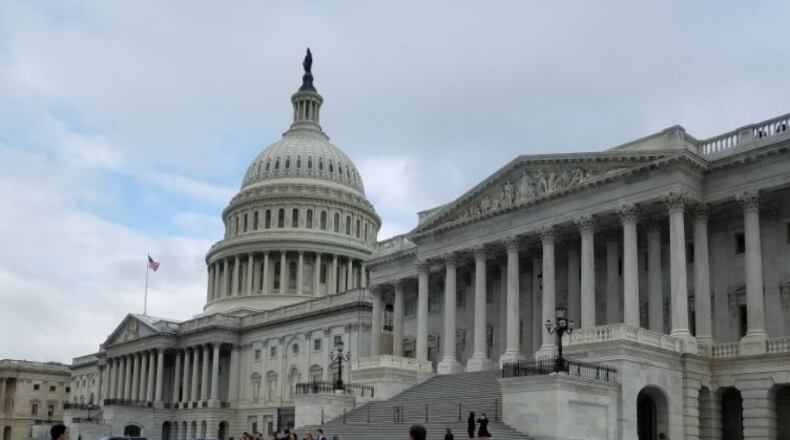In an extraordinary hearing on Capitol Hill, top U.S. Intelligence officials repeatedly refused to publicly discuss questions about conversations they had with President Donald Trump concerning the investigation into Russian meddling into the 2016 U.S. elections, as Senators said there was no legal reason preventing such public answers.
"What's the basis for your refusal to answer these questions today?" asked a frustrated Sen. Angus King (I-ME), who pressed both Director of National Intelligence Dan Coats and National Security Agency chief Mike Rogers to talk about their discussions with President Trump.
"I'm not satisfied with, 'I do not believe it is appropriate' or 'I do not feel I should answer,'" said King. "You swore that oath - to tell us the truth."
"I'm not going to comment on any interactions with the President," Rogers said. "I don't think that's appropriate."
Both Coats and Rogers began the hearing by warding off questions about reports that Mr. Trump had asked them to help weigh in against the FBI investigation into Russian meddling.
"In the three plus years that I have been Director of the National Security Agency, to the best of my recollection, I have never been directed to do anything I believed to be illegal, immoral, unethical or inappropriate," said Admiral Mike Rogers, the head of the NSA.
But Senators zeroed in on the use of the term 'directed.'
"Are you prepared to say that you have never been asked by the President or the White House to influence an ongoing investigation?" asked Sen. Marco Rubio (R-FL).
Those questions did not get far.
"Have you ever been asked to say something that isn't true," Rubio pressed.
"I stand by my previous statement," Rogers insisted.
"I do likewise," said Coats, though the DNI did promise to elaborate more in a closed door session.
Some did not worry about the nuance of the answers, saying Coats and Rogers had made clear that President Trump did nothing wrong.
"I think you have cleared up substantially your direct testimony that you have never been pressured by anyone," said Sen. Jim Risch (R-ID).
But that was a minority opinion, as the top member of each party on the Senate Intelligence Committee made clear at the end of the hearing that more direct answers are expected.
"At no time should you be in a position where you come to Congress, without an answer," said Sen. Richard Burr (R-NC), the committee chairman.
About the Author
The Latest
Featured



